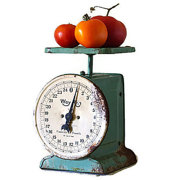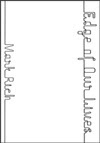The phrase comes to me sometimes — that I am writing on the world: the footsteps in new snow that I wrote about, that other day, you might see as an example. Each scrape and scratch we make; each rubbing, bumping, scuffing; each rearrangement, as of the leaves whose positions we change, by our passing, whether they are alive on a branch or are returned to earth at our feet; each thought, expressed by eye or tilting head or crooked elbow. All arrive as our writings on a place we call ours.
Just so we call a place in our book, the one we are reading, the place where we "are." We inhabit physical spaces anywhere but where that bookmark protrudes; yet there, pressed between leaves, we are. We have made the book ours, to one degree or another, by inhabiting it thus far. We have made it ours by writing ourselves into it, sentence by sentence. We are alive to it; for it takes footprints — invisible to others, yet footprints all the same, to be pointed out: for there we are.
And if there we are in the book, then there we are, anywhere we have been: we have inhabited it thus far, and no farther. So we read our world and write ourselves into it, word by word.
We all know how poorly we ourselves write, or others write. We see awkward handwriting, incomprehensible connections, slipping meanings, wrong turnings, false steps, false claims upon the language and for themselves, empty noises, mere motions. Mere motions may be writing to rank with the most thought-provoking when a mind in its meditations is moving somewhere, absent from and yet somehow pervading the mere motions. Yet we dwell in a world, in an all-surrounding book whose every other line tells us to move along without telling us why we should; and if inchoate and aimless in our mumbling we go on, moving along because we sense that we must move along, we express ourselves so because we have come so far, no farther. We say what we can, given the conditions. We brush a leaf in passage. We avert a gaze, unable to meet one — if we are to move along. We look around, and not to our surprise see how many are taking the world's injunction to move along to mean that they must hurry, hurry, hurry.
And if you hurry — perhaps it is you — you may justify yourself if you will, but only if in haste and without doing more than complaining; and if I — perhaps it is I — take the world's injunction to mean that I must slow, slow, slow, I feel that, like you, I must justify myself even though hesitating before putting my slip of paper in the slot in the box reserved for complaints.
For if I place my slip of paper there I fear I lose sight of how much better it is to be writing upon the world than to be written upon.
Cheers ...






